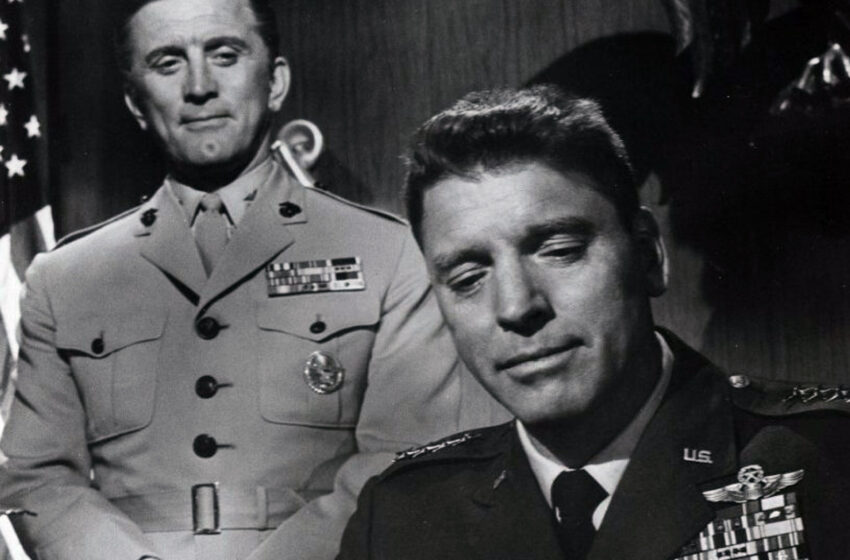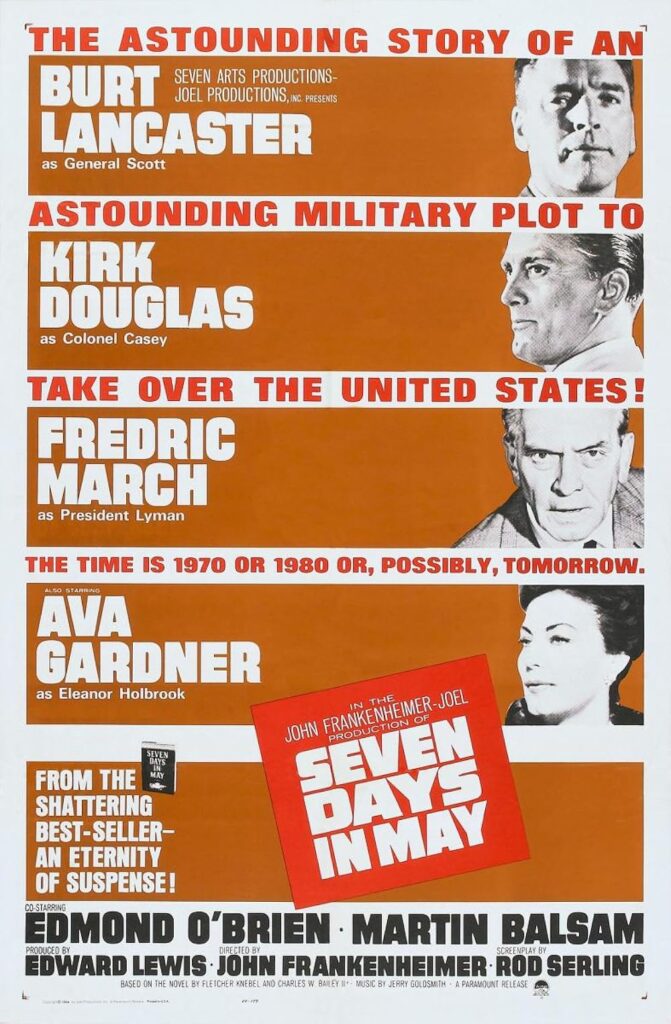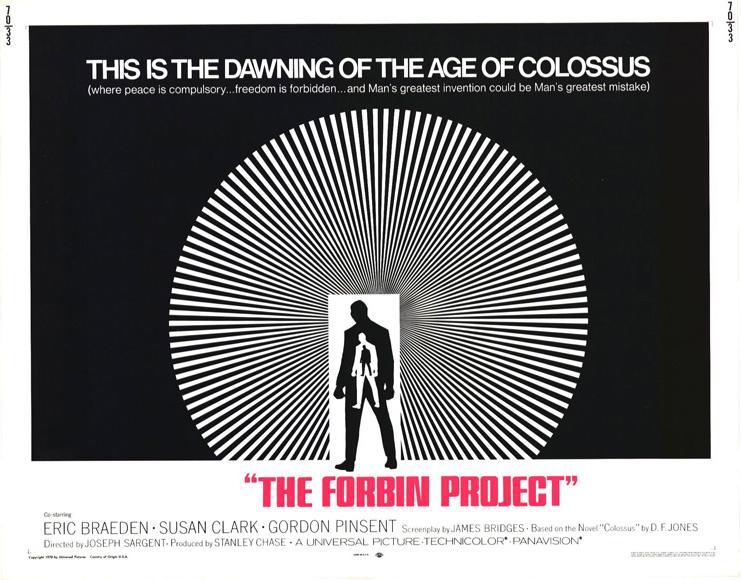
“Seven Days in May” (1964): Political Intrigue in the Shadow of the Cold War – Review

The 1960s, a period of intense political upheaval and Cold War paranoia, provided fertile ground for films that delved into the complexities of power, loyalty, and ideology. “Seven Days in May,” released in 1964, stands as a testament to the decade’s undercurrents, presenting a taut political thriller that is as much about its time as it is about timeless questions of democracy and military authority.
Plot Dynamics and the Cold War Backdrop:
Directed by John Frankenheimer and featuring a screenplay by the illustrious Rod Serling, “Seven Days in May” is set against the backdrop of a fictional Cold War standoff between the United States and the Soviet Union. The narrative revolves around a discovered plot by high-ranking U.S. military officials to overthrow the President due to his support for a controversial disarmament treaty.
The characters, from the morally upright Colonel Martin “Jiggs” Casey (Kirk Douglas) who uncovers the plot, to the charismatic General James Mattoon Scott (Burt Lancaster) who masterminds it, embody the spectrum of political and ideological beliefs of the time. Their interactions, dialogues, and confrontations serve as a microcosm of the broader debates about nuclear disarmament, the role of the military, and the limits of executive power.
Production Mastery and Atmospheric Brilliance:
Frankenheimer’s direction is palpably intense. Known for his expertise in creating tension-filled atmospheres, as seen in his other works like “The Manchurian Candidate,” Frankenheimer masterfully crafts a claustrophobic, high-stakes world in “Seven Days in May.” Cinematographer Ellsworth Fredericks complements this vision with tight shots and dramatic angles, amplifying the narrative’s urgency.
The decision to shoot in black and white, despite the widespread adoption of color by the mid-1960s, adds to the film’s gravitas. It accentuates the starkness of the political landscape and underscores the film’s noir-like exploration of moral ambiguities.
Behind-the-Scenes Context:
“Seven Days in May” is as intriguing for its creation as it is for its content. The film was adapted from the novel of the same name by Fletcher Knebel and Charles W. Bailey II. President John F. Kennedy, aware of the book and its unsettling premise, reportedly believed such a scenario, though unlikely, was possible. Kennedy’s tacit support and interest in the story facilitated the production crew’s access to shoot in the White House, lending the film an added layer of authenticity.
It’s also worth noting the impeccable timing of the film’s release. Coming just a year after the Cuban Missile Crisis, the most harrowing standoff of the Cold War, the narrative resonated deeply with audiences. The film’s exploration of a military coup in the world’s most powerful democracy was not just speculative fiction; it felt like a plausible reality.
Furthermore, the performances are noteworthy. Lancaster’s portrayal of General Scott oscillates between being intimidating and persuasive, representing a military mindset that views its actions as a patriotic duty rather than treason. Douglas, as the film’s moral center, embodies the internal conflict of a man torn between his allegiance to the military and his oath to the Constitution.
Legacy and Impact:
“Seven Days in May” offers more than just a thrilling plot. It serves as a mirror, reflecting societal anxieties of the 1960s. Its questions about the balance of power, the role of the military in a civilian government, and the potential fragility of democratic institutions are timeless. It’s a film that urges viewers to think, to question, and to remain vigilant.
In an era marked by political assassinations, civil rights movements, and the looming threat of nuclear annihilation, the film’s message was clear: democracy, no matter how established, is always a work in progress, requiring the active participation and scrutiny of its citizens. Through its compelling story, masterful direction, and behind-the-scenes authenticity, “Seven Days in May” remains a seminal work, inviting reflection on the values and vulnerabilities of democratic governance.




